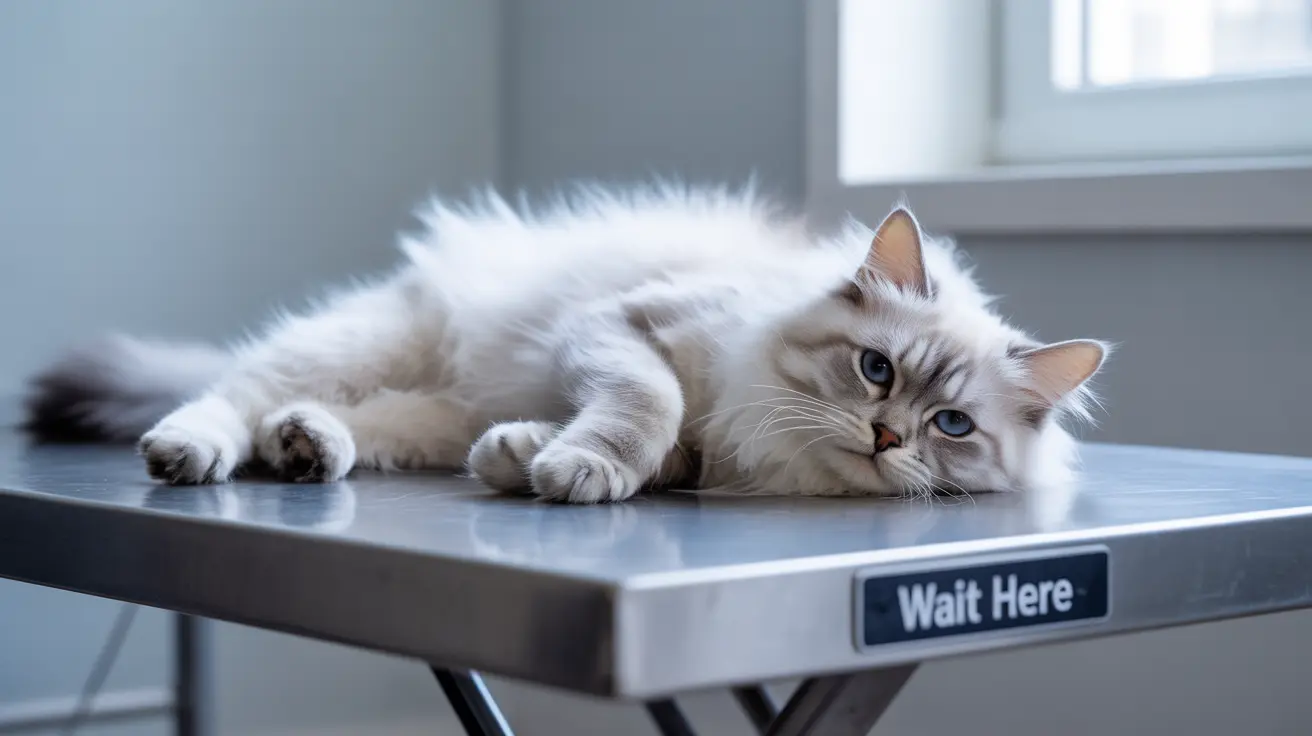What is Leiomyosarcoma in Cats?
Leiomyosarcoma is a malignant tumor that originates in the smooth muscle tissue of a cat's stomach and intestines. This type of cancer is particularly concerning because it tends to be aggressive and can spread rapidly to other organs, including the liver and lungs. While relatively uncommon, it typically affects cats over six years of age and can be challenging to detect in its early stages.
Signs and Symptoms
The symptoms of leiomyosarcoma can be subtle initially and often mimic other gastrointestinal issues, making early detection challenging. Common signs include:
- Persistent vomiting
- Unexplained weight loss
- Loss of appetite
- Diarrhea or changes in bowel movements
- Lethargy and weakness
- Abdominal pain or distention
- Blood in stool
These symptoms often develop gradually over weeks or months, which can delay diagnosis and treatment.
Diagnosis Process
Veterinarians use multiple diagnostic tools to confirm leiomyosarcoma in cats. The process typically includes:
- Physical examination and medical history review
- Blood work and urinalysis
- Imaging tests (X-rays, ultrasound, CT scans)
- Endoscopy with biopsy
- Histopathological examination
Early diagnosis is crucial for better treatment outcomes, though the subtle nature of early symptoms often makes this challenging.
Treatment Options and Management
The primary treatment for feline leiomyosarcoma is surgical removal of the tumor. Treatment approaches may include:
- Surgical excision with wide margins
- Post-operative pain management
- Supportive care for symptom control
- Possible chemotherapy in some cases
- Regular monitoring for recurrence
The success of treatment largely depends on how early the cancer is detected and whether complete surgical removal is possible.
Long-term Outlook and Care
The prognosis for cats with leiomyosarcoma varies significantly based on several factors:
- Stage of cancer at diagnosis
- Extent of tumor spread
- Success of surgical removal
- Overall health of the cat
- Response to treatment
With successful treatment, some cats may survive for months to years, though careful monitoring is essential due to the risk of recurrence.
Frequently Asked Questions
What are the early signs and symptoms of leiomyosarcoma in cats and how can I tell if my cat has it?
Early signs include persistent vomiting, weight loss, decreased appetite, and changes in bowel movements. However, these symptoms can be subtle and similar to other digestive issues. Any persistent digestive problems should be evaluated by a veterinarian, especially in older cats.
How is leiomyosarcoma diagnosed in cats and what tests should I expect from my veterinarian?
Diagnosis typically involves multiple steps, including physical examination, blood tests, imaging studies (X-rays, ultrasound, or CT scans), and ultimately a biopsy of the suspicious tissue. Your veterinarian may also recommend endoscopy to visualize the digestive tract directly.
What are the treatment options for leiomyosarcoma in cats and is surgery always necessary?
Surgery is the primary treatment option and is usually necessary for the best outcome. The goal is to remove the entire tumor and surrounding margins. Additional treatments may include supportive care, pain management, and potentially chemotherapy in some cases.
What is the prognosis and average survival time for a cat diagnosed with leiomyosarcoma?
Prognosis varies significantly depending on the stage at diagnosis and success of treatment. With complete surgical removal, cats may survive several months to years. However, due to the aggressive nature of this cancer, regular monitoring is essential.
Are there any known causes or risk factors for developing leiomyosarcoma in cats, and can it be prevented?
The exact cause of leiomyosarcoma is unknown, and there are no specific prevention methods. The main risk factor is age, with older cats being more susceptible. Regular veterinary check-ups can help with early detection, particularly in cats over six years old.
Conclusion
While leiomyosarcoma in cats presents significant challenges, understanding its signs and seeking prompt veterinary care can lead to better outcomes. Regular health monitoring, especially in older cats, remains crucial for early detection and treatment success. If you notice any persistent digestive issues in your cat, don't hesitate to consult with your veterinarian.






